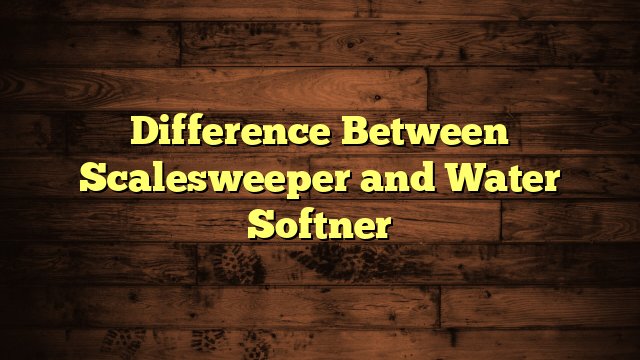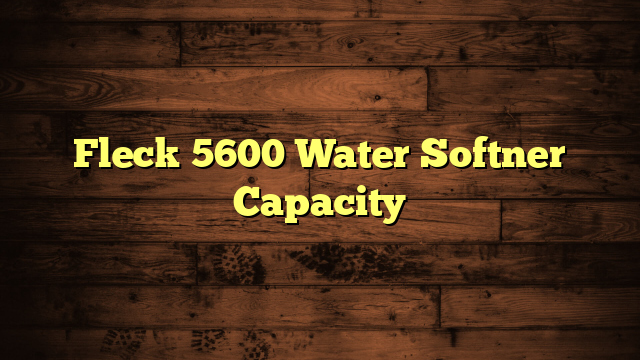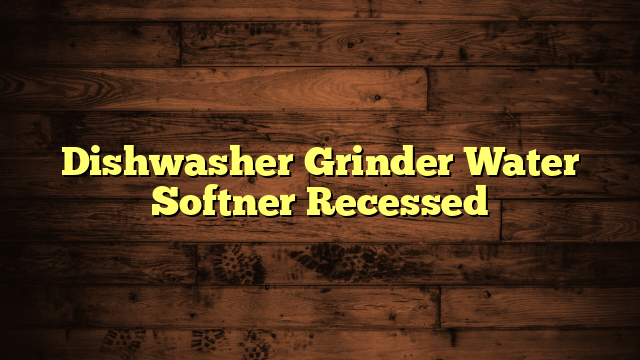Difference Between Scalesweeper and Water Softner
Did you know that nearly 85% of U.S. households deal with hard water issues? Understanding the difference between a scalesweeper and a water softener can help you choose the right solution for your home. While both systems aim to improve water quality, they operate on fundamentally different principles. So, which one aligns better with your needs? Exploring their unique mechanisms and benefits will clarify how each can impact your water experience.
Key Takeaways
- Scalesweepers use electromagnetic fields to disrupt mineral crystallization, while water softeners employ ion exchange to replace hard minerals with sodium or potassium.
- Scalesweepers maintain beneficial minerals in water, whereas water softeners can increase sodium levels.
- Scalesweepers require minimal maintenance, while water softeners need regular salt replenishment and resin replacement.
- Scalesweepers enhance plumbing efficiency and preserve the natural taste of water, while water softeners improve soap effectiveness and reduce soap scum.
- Scalesweepers typically have a straightforward installation process, while water softeners come in various types and may require more complex setups.
What Is a Scalesweeper?
A Scalesweeper is a device designed to prevent and remove mineral buildup, particularly calcium and magnesium deposits, in your plumbing and appliances. By utilizing advanced scalesweeper technology, this system targets hard water issues without the need for harsh chemicals.
Instead of traditional methods, which often fall short, the Scalesweeper efficiently breaks down mineral formations, protecting your pipes and fixtures from potential damage.
When you install a Scalesweeper, you'll notice its efficiency almost immediately. No more worrying about limescale accumulating in your water heater, showerheads, or faucets. This innovative device works continuously, guaranteeing your water remains clean and clear.
Your appliances will run more smoothly, and you'll likely extend their lifespan, saving you money in the long run.
Moreover, the Scalesweeper is easy to maintain and requires minimal intervention from you. Just check in occasionally to confirm it's operating correctly.
By choosing this technology, you're not just tackling mineral buildup; you're also investing in the longevity of your home's plumbing system.
What Is a Water Softener?
A water softener is a device designed to reduce the hardness of water, which can lead to scale buildup in your plumbing and appliances.
By using various methods, these systems remove minerals like calcium and magnesium, making your water gentler on your skin, hair, and household items.
Understanding the different types of water softeners and their benefits can help you choose the right one for your needs.
Function of Water Softeners
When hard water flows through your plumbing, it carries minerals like calcium and magnesium that can cause scale buildup and other issues. A water softener combats these problems by effectively reducing water hardness. It does this through a process called ion exchange, where the hard minerals are replaced with sodium or potassium ions.
By eliminating excess calcium and magnesium, a water softener helps prevent mineral buildup in your pipes, appliances, and fixtures. This not only extends the lifespan of your plumbing but also enhances the efficiency of water heaters and dishwashers, saving you money in the long run.
In addition to protecting your plumbing, softened water improves the effectiveness of soaps and detergents. You'll find that your laundry comes out cleaner, and your skin feels softer after a shower.
Plus, you'll notice fewer soap scum deposits on your bathroom surfaces.
Ultimately, a water softener is a wise investment for any household dealing with hard water. It tackles the issues stemming from water hardness, ensuring that you enjoy the many benefits of cleaner, softer water throughout your home.
Types of Water Softeners
Several types of water softeners are available to tackle hard water issues, each designed to fit different household needs and preferences.
One popular option is salt-based systems, which use ion exchange to remove calcium and magnesium ions from your water. These systems require regular salt replenishment to function effectively, but they're well-known for their efficiency in softening water.
Another type you might consider is magnetic softeners. Unlike salt-based systems, magnetic softeners work by applying a magnetic field to the water, altering the way minerals behave. This method reduces scale buildup, making it easier for your appliances to function well. While they don't technically soften water in the traditional sense, many users find them effective for minimizing hard water issues.
You'll also find dual-tank systems, ideal for larger households where continuous soft water is a priority. They switch between two tanks to provide an uninterrupted supply.
Each type has its pros and cons, so it's crucial to assess your specific needs and preferences. By understanding these options, you can make an informed choice that best suits your home and lifestyle.
Benefits of Water Softeners
Water softeners play an essential role in improving your home's water quality by effectively reducing the levels of hard minerals like calcium and magnesium. When you install a water softener, you'll notice an immediate difference in your daily activities.
For instance, you'll enjoy softer skin after showering, thanks to the elimination of harsh mineral buildup from your water.
One major benefit of using a water softener is its ability to prolong the lifespan of your appliances. Hard water can lead to scale buildup in pipes and appliances, which can cause clogs and inefficiencies. This means fewer repairs and replacements, saving you money in the long run.
Additionally, soft water enhances the effectiveness of soaps and detergents, making your laundry cleaner and your dishes sparkle. You'll find that you need less soap, reducing your household expenses while being kinder to the environment.
Moreover, using soft water can improve your home's overall plumbing system by preventing mineral buildup.
With so many advantages, investing in a water softener is a smart choice for anyone looking to enhance their water quality and home efficiency.
How Scalesweepers Work
Scalesweepers operate on a simple yet effective principle that helps prevent scale buildup in your plumbing.
By using unique technology, they not only provide immediate benefits for your water systems but also require minimal maintenance for long-lasting performance.
Understanding how these devices work will help you appreciate their role in keeping your water clean and your appliances running efficiently.
Operating Principle Explained
A scalesweeper operates by utilizing a unique technology to prevent mineral buildup in plumbing and appliances. This innovative device employs advanced operating mechanisms that alter the structure of minerals, making them less likely to adhere to surfaces.
Instead of softening water like traditional water softeners, scalesweepers use electromagnetic fields to disrupt the crystallization process of minerals such as calcium and magnesium.
When you install a scalesweeper in your plumbing system, it creates a magnetic field that influences these minerals, effectively reducing their ability to form scale. As a result, your pipes, faucets, and appliances remain clear of deposits, enhancing system efficiency.
You'll notice that your water flow stays consistent, and you won't have to deal with the hassle of frequent descaling.
Moreover, because scalesweepers don't remove beneficial minerals from your water, you can enjoy the natural taste and health benefits of mineral-rich water.
By understanding how a scalesweeper operates, you can appreciate its role in maintaining your home's plumbing system while promoting longevity for your appliances.
This modern solution provides an efficient alternative to traditional water softening methods, making it a smart choice for homeowners.
Benefits of Scalesweepers
With the installation of a scalesweeper, you'll experience several key benefits that enhance your home's plumbing system.
First and foremost, scalesweeper efficiency is one of its standout advantages. This device works by preventing scale buildup in your pipes, which can lead to clogs and reduced water flow. By eliminating scale, you'll notice improved water pressure and, ultimately, a more efficient plumbing system.
Another significant benefit is the reduced need for frequent plumbing maintenance. With less scale accumulation, you won't have to deal with costly repairs or replacements as often. This not only saves you money but also provides peace of mind knowing that your plumbing is in better shape.
Additionally, scalesweeper installation is typically straightforward, making it accessible for homeowners to enjoy these benefits without extensive modifications.
Once installed, you can rest easy knowing that your water quality will improve, enhancing everything from your showers to your appliances.
Maintenance and Longevity
Effective maintenance and longevity are essential for guaranteeing that your scalesweeper continues to operate at peak performance.
To achieve this, you need to evaluate several longevity factors that affect its efficiency. Knowing the right maintenance frequency will help you keep your scalesweeper in top shape.
Here's a quick checklist to guide you:
- Regular Inspections: Check for any signs of damage or wear.
- Clean the Unit: Remove any debris or buildup that could hinder performance.
- Monitor Settings: Verify the settings align with your specific water conditions.
- Replace Filters: Change filters as needed to maintain peak flow and function.
- Schedule Professional Servicing: Have a professional check it annually for any issues you might miss.
How Water Softeners Work
Understanding how water softeners work is essential for anyone looking to improve their water quality. Water hardness is primarily caused by the presence of minerals like calcium and magnesium. When these minerals dissolve in your water supply, they can lead to unwanted mineral buildup in your pipes, appliances, and fixtures.
Water softeners tackle this issue through a process called ion exchange. Inside the unit, you'll find resin beads coated with sodium ions. As hard water flows through, these beads attract and hold onto the calcium and magnesium ions while releasing sodium ions back into the water. This exchange effectively reduces water hardness, preventing mineral buildup and extending the life of your plumbing and appliances.
The result is softer water that feels better on your skin and improves the effectiveness of soaps and detergents. You'll notice a significant difference in everything from laundry to dishwashing.
Key Benefits of Scalesweepers
Scalesweepers offer several key benefits that can enhance your home's water quality and protect your plumbing system. By effectively managing mineral buildup, they provide a reliable solution to issues commonly faced in households with hard water.
Here are some Scalesweeper advantages that highlight its efficiency:
- Prevents Scale Buildup: Keeps your pipes and appliances free from harmful limescale deposits.
- Enhances Water Flow: Maintains ideal water pressure by preventing clogs.
- Extends Appliance Lifespan: Reduces wear and tear on water heaters, dishwashers, and other appliances.
- Environmentally Friendly: Often requires no chemicals, making it a greener choice for water treatment.
- Cost-Effective: Lowers maintenance costs by minimizing repairs and replacements due to scale damage.
With these Scalesweeper advantages, you can enjoy peace of mind knowing your plumbing system is protected.
The Scalesweeper efficiency translates into long-term savings and better water quality for you and your family. By investing in a Scalesweeper, you're not just enhancing your water experience; you're also safeguarding your home's infrastructure, ensuring it remains in top condition for years to come.
Key Benefits of Water Softeners
Water softeners can transform your home's water quality by addressing the challenges posed by hard water. By removing excess minerals like calcium and magnesium, water softeners prevent scale buildup in your plumbing. This not only enhances the longevity of your pipes but also improves plumbing efficiency.
You'll notice that your faucets and showerheads maintain a steady flow, reducing the risk of clogs.
Moreover, softened water benefits your appliances. Your washing machine and dishwasher will perform better, using less detergent and extending their lifespan.
You'll find that your clothes feel softer, and your dishes sparkle without spots.
In addition to appliance care, water softeners make everyday tasks easier. You'll experience smoother skin after showering and softer hair, thanks to the reduced mineral content.
Ideal Applications for Each System
When choosing between a scalesweeper and a water softener, it's important to evaluate your specific needs and the unique challenges posed by your water supply. Each system has its ideal applications, and understanding them can help you make the right decision.
A water softener is perfect for households dealing with hard water issues. It effectively removes calcium and magnesium, leading to:
- Softer skin and hair after showers
- Reduced scale buildup in pipes and appliances
- Improved efficiency of water heaters
- Longer-lasting laundry and dishware
- Enhanced effectiveness of soaps and detergents
On the other hand, a scalesweeper finds its ideal usage in environments where hard water is an ongoing concern but doesn't require full ion exchange. It can be beneficial for:
- Commercial facilities with large water usage
- Industrial settings where scaling is a frequent problem
- Areas with high mineral content but lower water consumption
- Homes that want to minimize scale without altering the water chemistry
- Systems that need regular maintenance with less chemical usage
Comparing Cost and Maintenance
Choosing between a scalesweeper and a water softener often boils down to cost and maintenance considerations.
When you look at the cost comparison, scalesweepers generally have a lower initial investment compared to water softeners. However, keep in mind that water softeners might save you money on long-term plumbing repairs, as they prevent scale buildup.
Maintenance requirements also vary between the two systems. A scalesweeper typically requires minimal upkeep—just regular cleaning and occasional checks to verify it's functioning properly.
On the other hand, water softeners demand more attention. You'll need to replenish salt regularly, and there might be a need for annual servicing to guarantee peak performance.
If you're looking for a hassle-free option, a scalesweeper may be the way to go. But if you want to protect your pipes and appliances in the long run, investing in a water softener could pay off.
Ultimately, your choice should reflect your budget, your willingness to maintain the system, and your specific water quality needs. Weigh these factors carefully to find the best solution for your home.
Frequently Asked Questions
Can Scalesweepers and Water Softeners Be Used Together?
Yes, you can use scalesweepers and water softeners together. The scalesweeper benefits your plumbing by preventing scale buildup, while the water softener enhances water quality. Their compatibility guarantees peak performance for your home's water system.
How Long Does a Scalesweeper Last?
You might wonder about a Scalesweeper's lifespan. Generally, with proper maintenance, it can last several years. Regular checks and upkeep guarantee peak performance, so don't neglect those maintenance tasks to extend its life!
Are There Any Health Concerns With Water Softeners?
Yes, there can be health risks with water softeners. They often replace calcium and magnesium with sodium, which may affect your mineral balance. If you have certain health conditions, consult a doctor about your water's sodium content.
Do Scalesweepers Require Electricity to Operate?
Scalesweepers typically don't require electricity to operate, focusing on innovative features that minimize energy consumption. You'll enjoy how they utilize mechanical processes, making them efficient and eco-friendly, perfect for maintaining your water quality without added power use.
Can I Install a Water Softener Myself?
Yes, you can install a water softener yourself. With the right DIY installation skills and basic installation tools, you'll manage the process. Just follow the manufacturer's instructions carefully for a successful setup.
Conclusion
In conclusion, whether you choose a scalesweeper or a water softener depends on your needs. Did you know that nearly 85% of U.S. households deal with hard water? Scalesweepers offer a low-maintenance solution that preserves beneficial minerals and the taste of your water. On the other hand, water softeners are effective but require regular upkeep and can alter sodium levels. By understanding these differences, you can make an informed choice that best suits your household.







